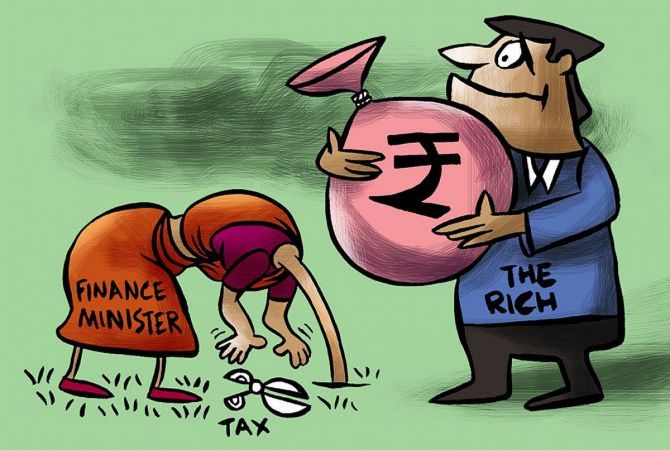While the tax-to-GDP ratio of 9.88 per cent has been assumed for FY21, the same as last year, when it touched a decadal low, for FY22 a ratio of 10.7 per cent has been assumed, an average of the last five years.

With the Indian economy expected to clock a growth rate of 13 per cent in nominal terms in 2021-22, gross tax revenues may be projected at around Rs 23.65 trillion in the upcoming Budget, back-of-the-envelope calculations suggest.
This is about 23 per cent higher than what was expected this year.
With the pandemic dealing a blow to Centre’s revenue collections, gross tax revenue for 2020-21 is estimated to hover around Rs 19.24 trillion in the current fiscal year — 4.23 per cent lower than in FY20 and 26 per cent lower than what was estimated at the time of the Budget.
This may mean that the Centre will revise downward the Budget estimate by at least Rs 5 trillion.
While the tax-to-GDP ratio of 9.88 per cent has been assumed for FY21, the same as last year, when it touched a decadal low, for FY22 a ratio of 10.7 per cent has been assumed, an average of the last five years.
The 13.5 per cent nominal GDP growth rate is on the basis of economists’ estimates of 11-15.5 per cent for FY22.
Gross tax revenue includes income tax, corporation tax, Goods and Services Tax (GST), customs, and excise duty.
Aditi Nayar, principal economist, ICRA Ratings, said assessing revenues for a turnaround year like FY22 was challenging.
“In terms of absolute numbers, we have assumed net tax revenues at Rs 15.5 trillion (+14 per cent relative to ICRA’s FY21 exp),” said Nayar.
Major changes in tax rates should not be undertaken in the upcoming Budget, she added.
“At this stage, when the revenue visibility remains clouded, the timing may not be appropriate to consider lowering the direct tax rates to avoid having to impose curbs on spending later, if the expected revenue buoyancy does not end up being realised.”
Gross tax revenue collection exceeded the Budget estimates in three years — FY16, FY17, and FY18.
In FY19 and FY20, the mop-up was even lower than the “revised estimates”, which were revised downwards.
As of November this year, gross tax revenue is just about half of last year’s level at Rs 10.26 trillion.
However, there was a sharp 23 per cent uptick in November, driven by personal income tax, excise duty, and customs duty, whereas corporate tax collection continued to see a contraction.
In the eight months up to November, gross tax revenue collection is down 12.6 per cent against the corresponding period last year.
Union finance secretary Ajay Bhushan Pandey in an interview had said with the economy expected to see negative growth, tax revenue collection will also be in that range.
The National Statistical Office has estimated nominal GDP to contract by 4.2 per cent and real GDP to decline by 7.7 per cent in 2020-21.
Tax buoyancy has been steadily declining since 2015-16, when it was 1.63, and became minus 0.47 in 2019-20.
Direct tax buoyancy went down from 1.59 in 2018-19 to 1.23 in 2018-19 to (-) 1.21 in 2019-20.
Tax revenue had declined by 3.39 per cent in 2019-20, with the tax-to-GDP ratio at a decadal low of 9.88.
Excise collection has been a bright spot in the current fiscal year, posting a stellar growth rate of 47.7 per cent till November on the back of the steepest hike by the government in taxes on petrol and diesel in the form of cess and special additional duty in May.
Two-thirds of the Budget estimate had been achieved up to November.
The excise duty on petrol stands at Rs 32.98 per litre and that on diesel at Rs 32.83 per litre.
GST, introduced in 2017, had subsumed excise duty on all items except petroleum products and alcohol.
Harpreet Singh, partner, KPMG said with most economists predicting a complete V-shaped economic recovery, GST revenues should ideally touch Rs 1 trillion each month during the next fiscal year.
“Implementing e-invoicing for all; including petrol, electricity, and real estate under GST; speedy tax refunds to avoid working capital blockages; and a conducive new foreign trade policy are some of the tax measures that could boost economic growth,” said Singh.
GST touched a historic high of Rs 1.15 trillion in December, while personal income tax grew by 35.7 per cent in November and customs by 9.2 per cent.










